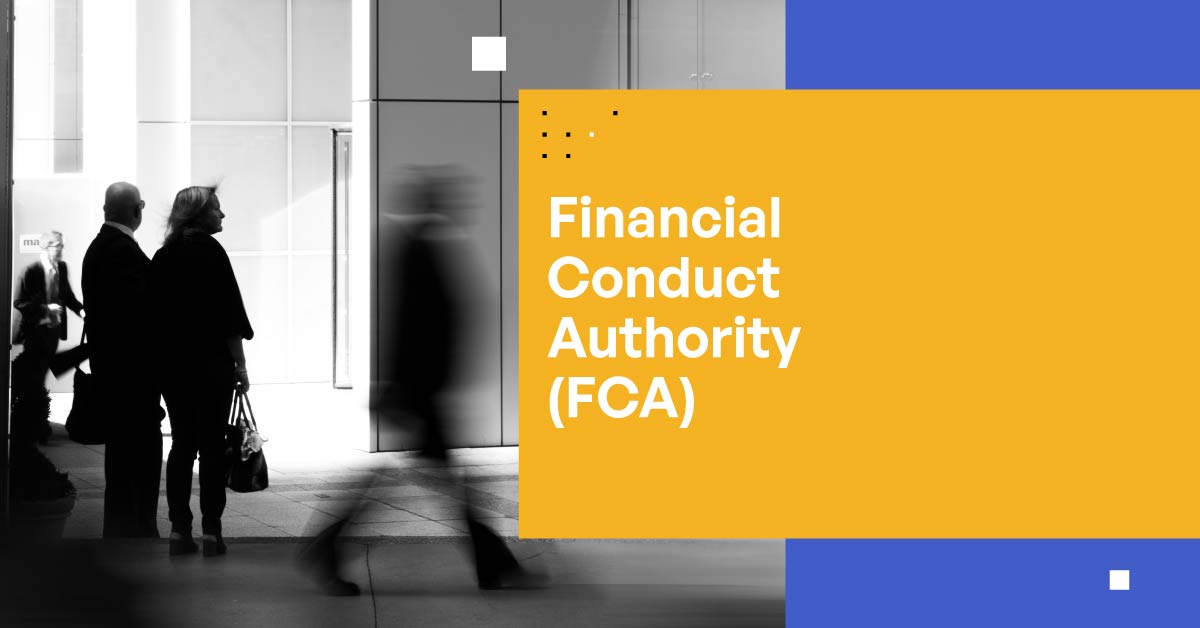Financial Conduct Authority (FCA) Compliance
In today’s complex and interconnected financial landscape, oversight, namely regulation and compliance, plays a crucial role in maintaining the integrity and stability of the world’s financial systems. Specifically, financial regulations ensure that financial institutions and markets operate in a fair and transparent manner to protect consumers and investors from fraud, misconduct, and systemic risks. Compliance with regulatory requirements is essential for financial firms to operate legally, ethically, and responsibly. The Financial Conduct Authority (FCA) is the regulatory body responsible for supervising and regulating financial firms based in the United Kingdom. It was established in 2013, taking over the regulatory duties of the Financial Services Authority (FSA). The FCA operates independently of the government and is accountable to the Treasury and Parliament.

What Is the Financial Conduct Authority (FCA)?
The Financial Conduct Authority (FCA) is the regulatory body responsible for overseeing the conduct of financial firms in the U.K. The FCA replaced the FSA following the 2008 global financial crisis and was part of a broader reform of the U.K.’s financial regulatory structure aiming to address the weaknesses that the crisis had revealed. The FSA was seen as having failed to prevent the crisis due to inadequate supervision and regulation of financial institutions. The FCA was created to focus on the regulation of conduct in retail and wholesale financial markets, making sure that business across the firms is done in a way that advances the interests of all users and participants.
The FCA’s primary objective is to ensure that the financial markets function efficiently, with integrity, and in the best interests of consumers. Oversight is critical, as London is one of the world’s financial hubs. The FCA is also responsible for promoting healthy competition and maintaining confidence in the financial system.
The FCA sets standards for financial institutions, monitors their compliance, and takes action against those who fail to meet the required standards. The FCA’s regulatory activities cover a wide range of financial services, including banking, insurance, investments, and consumer credit. The FCA has extensive regulatory powers and responsibilities to authorize and supervise financial firms, enforce compliance with regulatory requirements, and issue penalties for noncompliance. The FCA also has the power to investigate and take legal action against individuals and firms involved in misconduct or who suffer data breaches.
What Are the Key Objectives of the FCA
While the FCA’s oversight responsibilities are extensive, the organization has several key objectives that guide its regulatory activities:
Ensure Market Integrity and Consumer Protection
One of the primary objectives of the FCA is to maintain market integrity and protect consumers. The FCA works to ensure that financial markets operate in a fair and transparent manner, free from manipulation, fraud, and misconduct. It sets rules and standards for financial firms to ensure they conduct their business with integrity and treat consumers fairly.
Promote Competition in Financial Markets
The FCA also aims to promote competition in financial markets. It believes that competition leads to better outcomes for consumers, as it encourages innovation, improves quality, and drives down costs. The FCA monitors market competition and takes action against anti-competitive behavior, such as cartels or abuse of market dominance.
Maintain Confidence in the Financial System
Another key objective of the FCA is to maintain confidence in the financial system. The FCA works to ensure the stability and resilience of the financial system, as well as the integrity of financial products and services. It monitors systemic risks and takes action to prevent or mitigate potential threats to financial stability.
Why Do Financial Organizations Need to Comply With FCA?
Given the FCA’s charter to, essentially, protect consumers, maintain market integrity, and ensure the stability of the financial system, compliance is critical. By complying with FCA regulations, financial services organizations demonstrate to their clients that they respect the rule of law and share a similar interest in a fair and properly functioning financial system. Compliance with FCA regulations is crucial for financial firms to operate legally, ethically, and responsibly. Noncompliance can lead to regulatory action, reputational damage, and financial losses.
Benefits of FCA Compliance
Adhering to FCA regulations has several benefits for financial firms:
| Legal and Regulatory Compliance | FCA compliance ensures that financial firms operate within the boundaries set by the law. It helps firms avoid litigation, penalties, and regulatory sanctions. |
| Reputation and Trust | Compliance enhances a firm’s reputation and builds trust among clients and stakeholders. By demonstrating a commitment to following regulations and ethical practices, firms can establish themselves as reliable and trustworthy members of the financial community. |
| Consumer Protection | Compliance with FCA regulations ensures that financial firms prioritize their clients’ best interests. It protects consumers from fraudulent activities, unfair treatment, and unethical practices. Compliance also helps to build a strong relationship of trust between the firm and its clients. |
| Risk Mitigation | FCA compliance helps financial firms mitigate legal and financial risks. By adhering to FCA regulations, firms reduce the risk of legal actions, fines, and lawsuits. Compliance also helps to prevent reputational damage and financial losses associated with noncompliance. |
| Access to Capital Markets | Compliance with FCA regulations is often a requirement for accessing capital markets. Meeting regulatory requirements demonstrates a firm’s commitment to transparency and accountability, making it more attractive to investors. |
What Is the FCA Handbook and What Is Its Role in Compliance?
The FCA operates within a well-defined regulatory framework, which outlines the rules, guidelines, codes of conduct, and principles. The FCA Handbook is a comprehensive guide to regulatory compliance for financial firms. It covers a wide range of topics, including governance, capital adequacy, risk management, customer protection, and conduct of business. The Handbook sets out the specific requirements that financial firms must meet to comply with FCA regulations.
What Are FCA Compliance Obligations?
FCA regulations impose certain obligations on financial firms, which they are required to fulfill. These include obtaining relevant licenses and authorizations, adhering to conduct rules, and complying with specific regulations for different sectors. Transparency and accurate disclosure are essential for maintaining market integrity and consumer confidence. By providing clear and accurate information, financial firms enable investors and consumers to make informed decisions. The FCA’s compliance obligations include:
FCA Licensing and Authorization Requirements to Establish a Baseline of Legitimacy
Financial firms must go through a licensing and authorization process with the FCA before they can commence operations. This process involves demonstrating their fitness and propriety, financial stability, and compliance with regulatory requirements. The FCA assesses the firm’s directors, key personnel, and shareholders to ensure they meet the necessary standards.
FCA Conduct Rules and Specific Regulations to Ensure Fair, Ethical Behavior
Financial firms are subject to specific conduct rules and regulations depending on their sector. These rules govern various aspects of their business operations, such as client interactions, marketing practices, and risk management. Firms must comply with these rules to ensure fair and ethical behavior.
FCA Reporting and Disclosure Requirements for Bolstering Transparency
Financial firms must comply with reporting and disclosure requirements set by the FCA. This includes submitting regular reports on their financial activities, disclosing relevant information to clients, and providing transparency in their operations. Reporting and disclosure obligations ensure that firms operate in a transparent manner and provide accurate information to stakeholders. For example, financial advisory firms are required to report to the FCA on:
- Professional standards data that identify whether a firm’s advisers hold appropriate qualifications
- A firm’s charging model, including service rates, a profit and loss account, details of training and competence, and adviser charging and client data
- Ongoing data for complaints against retail investment advisers
- Adviser competence data including any competence or ethics issues that arise
Most importantly, financial firms are required to develop and maintain comprehensive systems and controls to ensure secure data collection, secure data storage, and comprehensive reporting.
Monitoring and Assessing FCA Members Ensures Adherence
The FCA conducts regular monitoring and assessments of financial firms to ensure their compliance with regulatory requirements. The FCA assesses firms’ systems, controls, and processes to identify any potential issues or breaches. This may involve on-site visits, audits, and inspections.
FCA Regulatory Visits, Assessments, and Audits
Regulatory visits, assessments, and audits are conducted by the FCA to assess firms’ compliance with regulatory requirements. These visits involve FCA representatives visiting the firm’s premises, reviewing documents and records, and conducting interviews with key personnel. The purpose of these visits is to assess whether the firm has effective systems and controls in place to comply with regulations and to identify any potential areas of noncompliance.
What Are the Consequences of Noncompliance With FCA Regulations?
Noncompliance with FCA regulations can have serious consequences for financial firms. The FCA has the power to impose fines, penalties, and sanctions on firms that fail to meet regulatory requirements. The severity of the penalties depends on the nature and extent of the breach, and can range from monetary fines to restrictions on business activities. In some cases, criminal charges may be brought against individuals or firms for serious breaches of regulations, which can result in imprisonment.
Best Practices for FCA Compliance
FCA compliance is of utmost importance for firms operating in the financial industry, especially in relation to sensitive data communications. The FCA has established regulations to ensure the protection of sensitive data and prevent any misuse or unauthorized access. However, firms often face challenges in meeting these compliance requirements. Some best practices for FCA compliance include:
| Employee Awareness and Training | Firms should establish comprehensive training programs to educate employees about FCA regulations, data handling best practices, and the consequences of noncompliance. |
| Privacy Impact Assessments (PIA) | Conducting PIAs helps firms understand the impact of data processing activities on individuals’ privacy rights and determine appropriate measures to address any potential risks. |
| Data Protection Impact Assessments (DPIA) | DPIAs help identify and mitigate risks associated with the processing of personal data. DPIAs are particularly relevant when implementing new systems or technologies involving sensitive data. |
| Auditing and Monitoring | • Implement access controls and encryption measures to protect sensitive data. • Monitor data access and usage, and promptly investigate any suspicious activities. • Conduct periodic internal audits to identify any compliance gaps and take corrective actions. |
| Documenting Compliance Efforts | Firms must maintain thorough records and documentation of their compliance efforts. This includes policies, procedures, training materials, and audit reports. These records serve as evidence of compliance and can be used to demonstrate adherence to FCA regulations. |
| Regular Compliance Assessments | To ensure ongoing compliance, firms should conduct regular compliance assessments to identify any gaps or weaknesses in their processes and controls. These assessments should cover all areas related to sensitive data communications and should involve internal and external stakeholders. |
Operationalize FCA Compliance Efforts With Kiteworks
Sensitive content communications is critical in FCA compliance efforts, and financial organizations in the U.K. must ensure they have the right policy controls and security processes in place. The Kiteworks Private Content Network provides a unified platform for U.K. financial firms to manage, track, control, and secure sensitive content communications. It enables zero-trust policy management across all communication channels, including secure email, file sharing, managed file transfer (MFT), web forms, and application programming interfaces (APIs).
Kiteworks empowers agencies to demonstrate compliance with data privacy regulations like the FCA, the General Data Protection Regulation (GDPR), the Payment Card Industry Data Security Standard (PCI DSS), and others. Kiteworks also offers advanced security features, including a hardened virtual appliance, an embedded network firewall, WAF, an antivirus engine, end-to-end encryption, AI-enabled anomaly detection, and integrated security capabilities like data loss prevention (DLP), content disarm and reconstruction (CDR), and advanced threat protection (ATP).
To learn more about the Kiteworks Private Content Network and how it can help your organization with FCA compliance, schedule a custom demo today.

